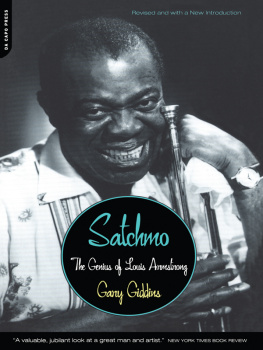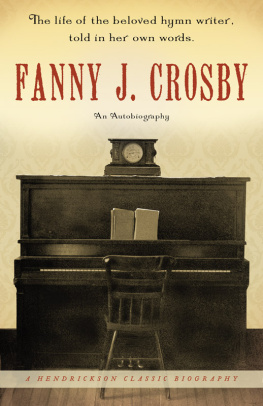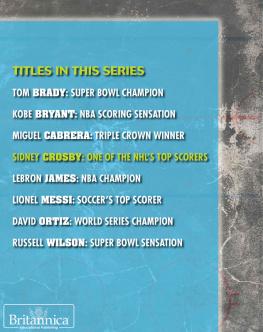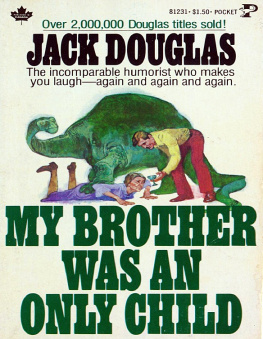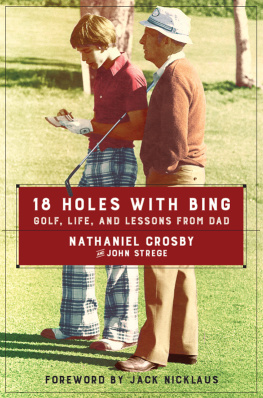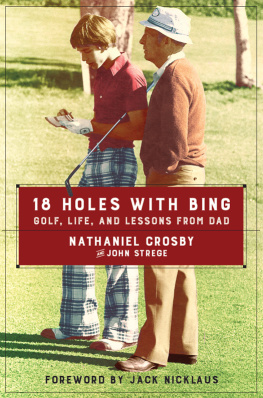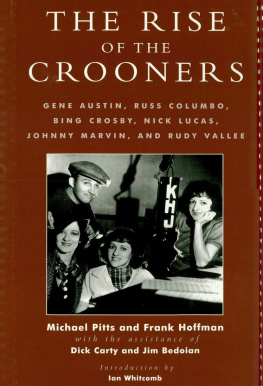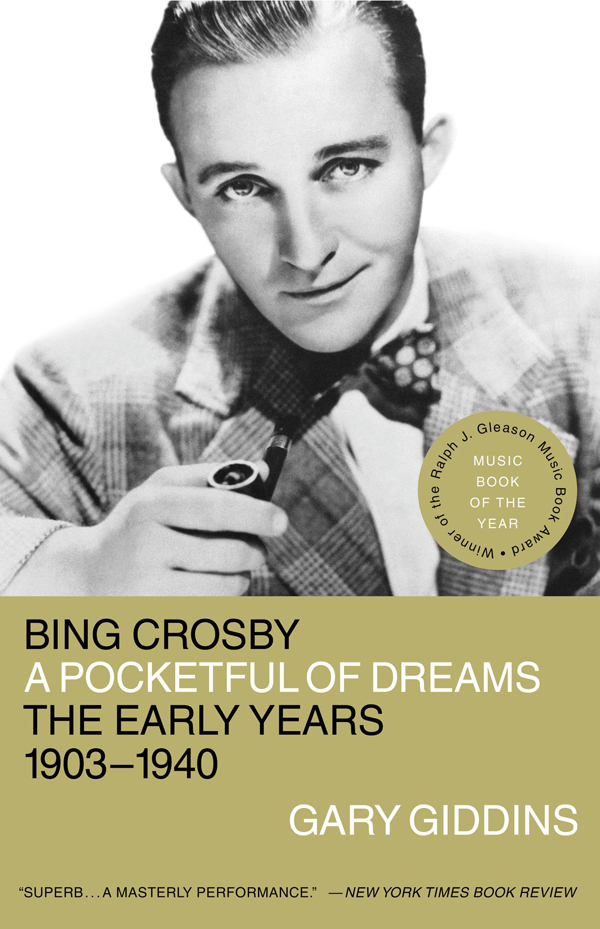Copyright 2001 by Gary Giddins
All rights reserved. No part of this book may be reproduced in any form or by any electronic or mechanical means, including information storage and retrieval systems, without permission in writing from the publisher, except by a reviewer who may quote brief passages in a review.
Originally published in hardcover by Little, Brown and Company, January 2001
Warner Books, Inc.
Hachette Book Group
237 Park Avenue
New York, NY 10017
Visit our website at www.HachetteBookGroup.com
First eBook Edition: November 2009
Permissions acknowledgments appear on .
ISBN: 978-0-316-09156-5
BING CROSBY: A POCKETFUL OF DREAMS The Early Years 1903-1940
Winner of the Ralph J. Gleason Music Book Award and the Theater Library Association Award
Gary Giddins has performed a great service in tracking Crosbys life and career so scrupulously. Hes not only superb on the music, but he also has lovingly considered the films of the 30s. A masterly performance.
Robert Gottlieb, New York Times Book Review
A literary tour de force that redefines the pejorative genre show-business biography and suggests the genres potential as serious scholarship and even perhaps as art. Bing Crosby: A Pocketful of Dreams is a compelling narrative of one of our most important and underrated historical figures, and its a durable companion. You have to read the book to get to know him; maybe reread it. Its that good.
Bruce McCabe, Boston Globe
An ambitious, literate, and eminently readable biography of the famed crooner. Giddinss account is big, but lean; theres no padding, but instead a wealth of observation not only on Crosbys early career but also on its social and historical context. A pleasure for fans, this is likely to become both the standard biography of the singer and a model for other show business lives.
Kirkus Reviews
Bing Crosby: A Pocketful of Dreams demonstrates the advantages of good history over jaded generational memory. In Bing Crosby, Giddins sees the story of a monumental cultural force, and the author has given his subject duly epic treatment.
David Hajdu, Village Voice
A terrific biography. Giddins takes a fresh and compelling look at the forgotten first half of Crosbys long career, turning the clock back to the Roaring Twenties to show how Crosby started out as a hard-drinking, hard-swinging jazzman whose nonchalant way with a song was universally regarded, even in Harlem, as the height of hipness.
Terry Teachout, Time
Giddins is a dangerous critic; his writing is so evocative he can make you think yourself intimate with music youve never even heard. He believes. By the end of Part One, the reader does, too.
John Anderson, Newsday
Giddins has done his work diligently, cutting through the encrustation of myth and press agentry surrounding Bing Crosby in and since his lifetime, bringing welcome clarity to his rise as a singer, radio personality, and movie actor and mapping his personal life with admirable objectivity.
Richard M. Sudhalter, Los Angeles Times
The authors boundless but utterly clear-eyed enthusiasm for his subject is contagious.
Joanne Kaufman, People
While Giddins covers Crosbys personal life in detail, including his early alcoholism and marriage to actress Dixie Lee, the heart and soul of the book is the authors infectious love of Bing Crosbys performances. Its catching.
Tom Beer, Biography Magazine
Giddins offers ripe social insights and Bing Crosby: A Pocketful of Dreams soars when it shows what the singer meant to America, not just to American music.
John Freeman, Denver Post
Hits all the notes, meticulously. One of the best aspects of Giddinss approach is his ability to place Crosby in terms of his time, both historically and musically. The book is an education in terms of popular music. The definitive biography for the ages.
Deirdre Donahue, USA Today
Giddinss fascination with the environment from which artists emerge enhances all his writings. He covers Bings fabulous ascendancy to stardom from 1927 to 1935 brilliantly band singing, stage shows, radio broadcasts, filmmaking, golfing, and wild parties across the land.
Philip Elwood, San Francisco Chronicle
No singer should be without this book. Its the story, among other things, of the man who invented American pop singing.
Tony Gieske, Hollywood Reporter
As Gary Giddins makes plain in his perceptive and exhaustively researched biography, Crosby was the right man at the right place at the right time. Giddins has a keen understanding of who Bing Crosby was, how he got that way, and why he was so widely, gratefully loved. I await his second volume with eager expectation.
Jonathan Yardley, Washington Post Book World
Riding on a Blue Note (1981)
Rhythm-a-ning(1985)
Celebrating Bird (1987)
Satchmo(1988)
Faces in the Crowd (1992)
Visions of Jazz (1998)
Bing Crosby: A Pocketful of Dreams
The Early Years, 1903-1940 (2001)
for Lea and Deborah
and Alice, Helen, and Norman
and Rosemary Clooney
It is a pleasure to think about Bing Crosby.
Gilbert Seldes, The Public Arts
To be interesting, a man must be complex and elusive. And I rather fancy it must be a great advantage for him to be born outside his proper time and place.
Max Beerbohm, Rossetti and His Circle
The bearers of the myth of every decade seem to carry in their hands the ax and the spade to execute and inter the myth of the previous one.
Murray Kempton/Part of Our Time
Whatever might have been bad in the first part of his life, was surely condemned and reformed by his better judgement.
Samuel Johnson, Lives of the Poets
Let us consider the case of a bodily voice.
Saint Augustine, Confessions
There was a time, not so long ago, when it was truthfully said that no hour of the day or night, year after year, passed without the voice of Bing Crosby being heard somewhere on this earth.
Gilbert Seldes, The Public Arts(1956)
His last words were characteristic. Walking off the eighteenth green of the La Moraleja Golf Club, in a suburb of Madrid, Bing Crosby said, That was a great game of golf, fellas, and then took a few steps and was gone. The three Spanish champions who made up the foursome had ribbed the old crooner about his ratty red sweater and white hat, but Bing and Manuel Pinero won by a single stroke and collected ten dollars. Bing had been in a good mood all afternoon, singing and laughing during the four-and-a-half-hour match, shooting a respectable 85, a lot better than his 92 the day before. He was scheduled to hunt partridge in the countryside the next day; then, on Sunday, fly west to the island resort of Palma de Majorca for more golf before starting home to San Francisco.
But after what was to be his last game, shortly after 6:00 P.M. on October 14, 1977, about twenty yards from the clubhouse, Crosby silently crumpled. The others thought he had slipped. When they realized he had suffered a massive heart attack, they frantically
His death was front-page news everywhere. In the United States and Great Britain, his passing was treated as comparable to that of Churchill and de Gaulle. Newspapers then were edited and written by the generation of men and women who came of age during World War II. They remembered Crosby as a shining light during those years, not merely because Der Bingle had made the largest number of V-Discs and army broadcasts, toured in England and France in 1944, and raised $14.5 million in war bonds (a


